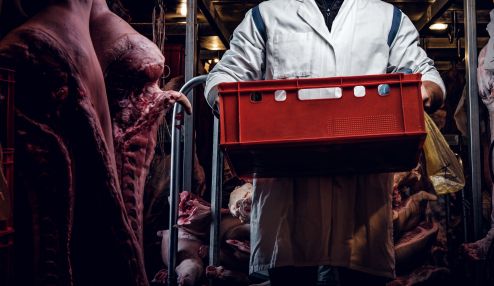553

Logistics for fresh meat deliveries represents a critical element of the supply chain, where each stage must be rigorously managed to preserve product safety and quality. Regulation (EC) No. 853/2004 requires the transport of fresh meat at a constant temperature of no more than +4°C, which necessitates the use of refrigerated vehicles equipped with monitoring systems.
In Romania, ANSVSA inspections in 2024 showed that 12% of meat shipments presented temperature deviations, leading to sanctions and product recalls. Logistics optimization involves the use of IoT sensors for real-time temperature monitoring, more efficient routes based on planning algorithms, and reduced transit time through direct collaboration with retailers.
According to a McKinsey report, logistics digitalization can reduce fresh meat losses by up to 15% and transport costs by 10%. In addition, the use of active packaging, which absorbs oxygen and maintains freshness, contributes to extending shelf life. For processors and distributors, logistics optimization is not only a measure of efficiency, but also a prerequisite for maintaining consumer trust and access to external markets.
(Photo: Freepik)




